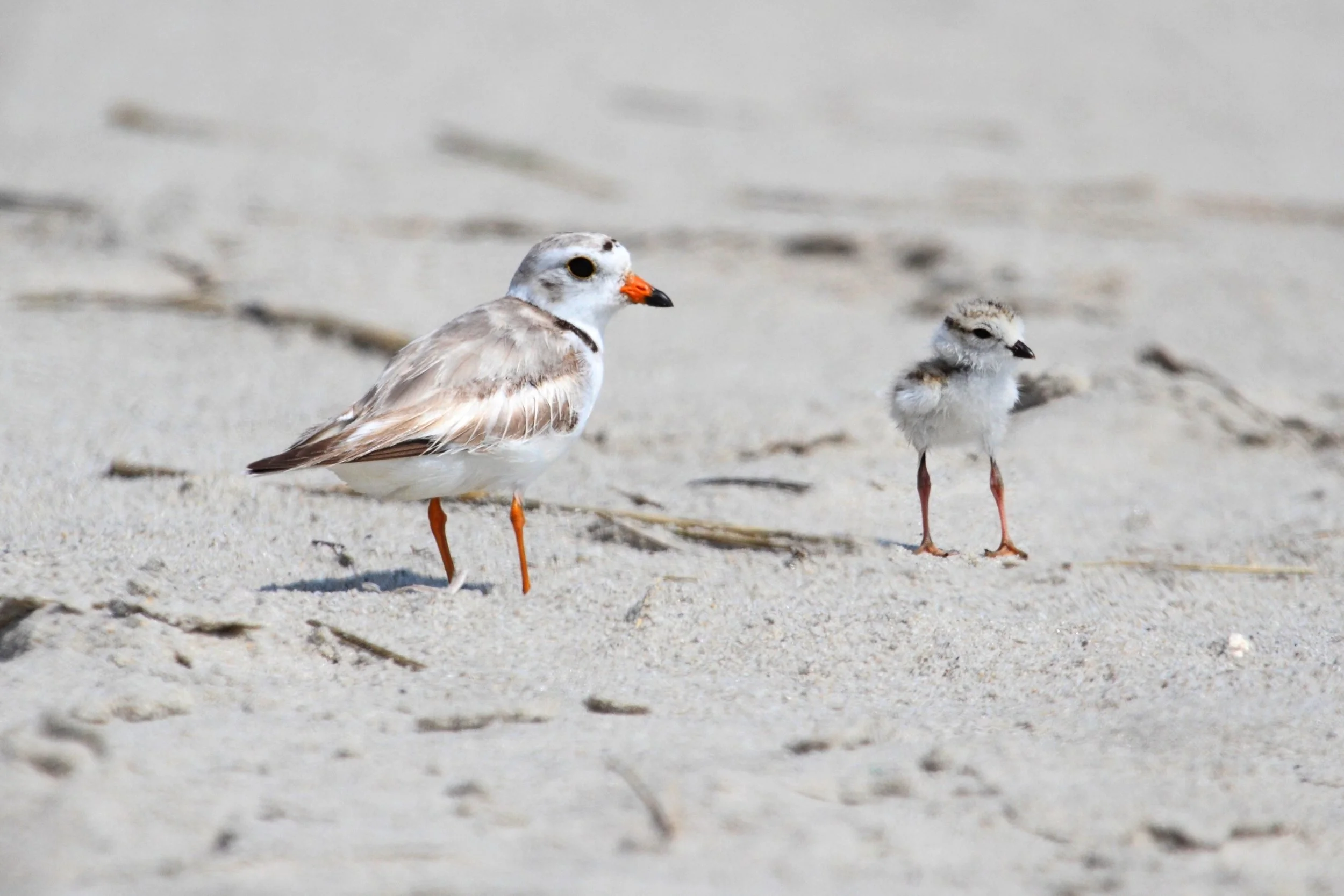Seasonal Restrictions in Effect at Shifting Lots Preserve
By Thomas Patti, Communications Coordinator
Symbolic fencing at Shifting Lots Preserve. Photo by Jerry Monkman.
Shifting Lots Preserve in Plymouth could be considered prime real estate for people and wildlife alike. For people, the warm sand, cool waters, and quintessential South Shore views make the Wildlands Trust property and adjacent Ellisville Harbor State Park a can’t-miss summer destination. For wildlife, the preserve’s salt marsh estuary, sand dunes, and migrating barrier beach provide crucial habitat to an intricate web of aquatic and terrestrial species. Ensuring that Shifting Lots remains a place for all species to enjoy requires seasonal adjustments to how we humans engage with the property.
In late March, volunteers and staff from Wildlands Trust and the Friends of Ellisville Marsh installed symbolic fencing around the historic nesting area of Piping Plovers within the preserve. This fencing, composed of simple wooden stakes and twine with bright-colored educational signs, may not provide much of a physical barrier between shorebirds, people, and predators, but it can help alert beachgoers to the small, sandy-colored birds that are otherwise almost impossible to spot. Alongside habitat loss from beachfront development and predation from gulls, raccoons, and other species attracted to nest sites by food waste and garbage, Piping Plovers face death and nest failure from more direct human conflict, including pedestrians and offroad vehicles trampling eggs and unleashed dogs frightening parents and chicks. Consequent population declines have contributed to their protected status under both the state and federal endangered species acts since 1985.
Volunteers of Wildlands Trust and the Friends of Ellisville Marsh installed fencing at Shifting Lots in late March.
However, the dedicated efforts of local, state, and regional organizations and agencies have demonstrated that a little intervention can go a long way toward protecting these vulnerable shorebirds. Over the past four decades, symbolic fencing, nest monitoring, and public education have contributed to a sevenfold increase in Piping Plovers in Massachusetts, from 135 pairs in 1986 to 956 pairs in 2021. Collaboration among conservation groups—including the longstanding partnership between Wildlands Trust, the Friends of Ellisville Marsh, and Mass Audubon’s Coastal Waterbird Program—has proven particularly effective at securing the space that Piping Plovers need to thrive along our shoreline.
For plovers to continue calling our region home, we all need to do our part! Please obey all signage at Shifting Lots Preserve, especially by keeping out of fenced areas. Every year between May 15 and September 15, the Shifting Lots parking lot is closed in order to moderate visitation during peak breeding season. Vehicles may drop off passengers at the parking lot gate and park at Ellisville Harbor State Park, a short walk from Shifting Lots.
Piping Plovers.
Thank you for helping us uphold our duty to protect the vulnerable wildlife of Shifting Lots Preserve. If you observe vandalism or other suspicious behavior on the property, please take photos or videos and notify the Plymouth Police Department and/or Wildlands Trust at info@wildlandstrust.org or 774-343-5121. For your safety, please do not approach any active or hazardous situation.
To learn more about shorebird conservation at Shifting Lots Preserve and beyond, check out this 2021 webinar presented by Wildlands Trust, Mass Audubon, and the Friends of Ellisville Marsh.



